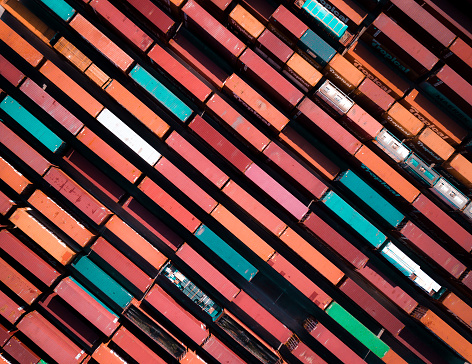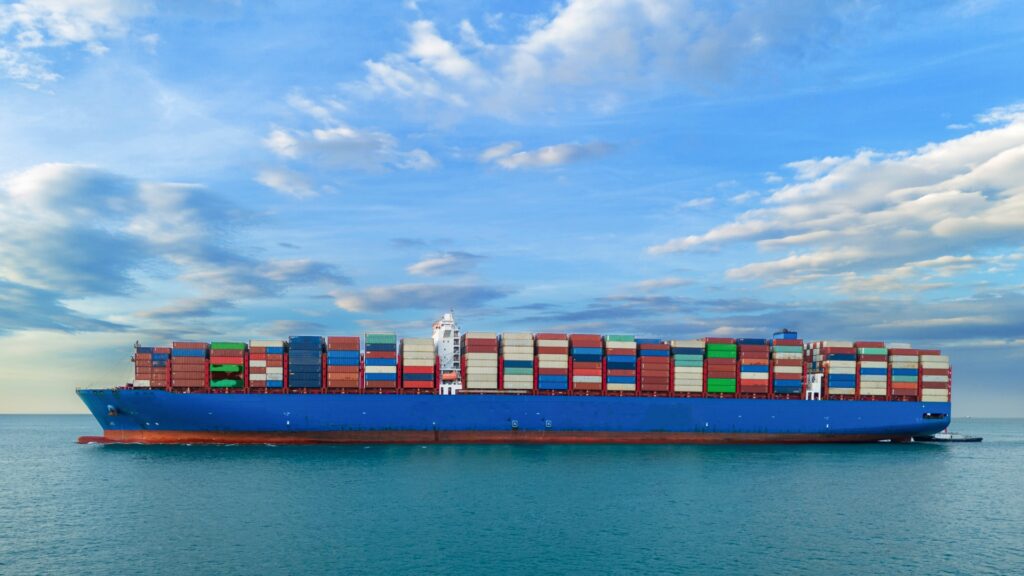In our latest interview with a trade finance leader, we spoke to Tat Yeen Yap, Head of Product APAC at MonetaGo, a fintech that provides risk mitigation and secure financing solutions – a pertinent topic given the series of reported commodity finance frauds in 2020.
Tat Yeen has 29 years’ experience in the banking and trade finance industry and our wide-ranging discussion covered some of the lessons he has learned in that time – there are some great stories along the way!
Read on to discover:
- Why MonetaGo’s platform was implemented in India 3 years ago
- How technology is changing the way banks are able to respond to duplicate financing fraud
- What it is like to work at a fintech startup in 2021 (clue: it is not boring!)
- How a product paper released in 2000 introduced Tat Yeen to the concept of supply chain finance and changed the course of his career
- Why you should ‘always be learning’ if you want to succeed and reach senior positions in your organisation
Thank you for your time Tat Yeen!
ICC Academy (ICCA): Can you tell us a bit more about your current role at MonetaGo and give us a bit of background on what MonetaGo does exactly?
Tat Yeen Yap (TYY): Sure, maybe the best way to give you some background is a personal story.
Two and a half years ago I was on a business trip to Mumbai in India and met with one of the TReDS exchanges. TReDS stands for Trade Receivables e-Discounting System. In short, it is akin to a national supply chain finance platform and is the brainchild of the Reserve Bank of India (RBI), which is India’s central bank.
I believe one of RBI’s key objectives with TReDS was to avail financing to the lower end of the market; the micro, small and medium enterprises in India, who were not necessarily getting the trade finance they needed because they were seen as higher risk and less profitable for banks.
On the TReDS platform, MSMEs may submit their invoices for sales to large corporate buyers in India, and when the buyers approve the invoices thereon, these invoices are made available to banks or other (non-bank) finance providers for funding. These financiers were taking the credit risk of the big Indian corporates and financing the MSMEs at the same time.

Within the TReDS network there are 3 exchanges. Each one is a for-profit commercial enterprise that makes money through the transactions on their platform This means each exchange has the incentive to onboard as many large corporate buyers and as many MSME suppliers as they can.
Each of the exchanges compete against the other but they had a common problem; how do they mitigate the risk that the same invoices are financed across two or more of the exchanges?
When I met them 2.5 years ago, they told me they had a solution that was preventing duplicate financing. I took note but I didn’t really pay too much attention as it was not my focus at the time. But 6 months ago, I met MonetaGo – a New York-headquartered fintech that had just opened an office here in Singapore – and discovered that they were the company providing the solution back in India!
In December last year I came on board.
ICCA: Interesting. Can you tell us a bit more about what MonetaGo does?
TYY: Right now we are focusing on creating a global risk mitigation network using our Secure Financing platform that detects and prevents duplicate financing involving the same documents.
Essentially what we do is to register queries made by lenders on their transactions using cryptographic hashes. This means that the information is not hackable and remains private and secure. If someone were to discover one of the hashes, it is just a string of numbers which is unintelligible to anyone and doesn’t reveal the information that created the hash.
By hashing data we are able to compare hashes that are registered on the common network and detect duplicates. When the data content that creates the hash is duplicated the exact same hash will be created.
MonetaGo is really in the business of providing not just the technology, but also a technique for the prevention of duplicate financing. We have launched this year in Asia and later in the year we will be launching in Europe.
ICCA: Why do you think the trade finance industry has taken so long to adopt technology?
TYY: Well, one key reason is that the technology was not previously available. Not in a mature form anyway. There have been proofs of concept (POCs) or trials for the prevention of duplicate financing as far back as 5 or 6 years ago. But they never got further than this.
I think it is fair to say that MonetaGo is the one company that has taken this past the POC stage into a production environment. The solution has been running since March 2018 which makes it the most mature solution in the world.
If you look at the trade and commodity finance frauds reported last year, they had been perpetrated for years before they were discovered. This is often the nature of frauds. The fraudsters aren’t necessarily out to cheat the banks and financiers of money. These schemes tend to be about raising liquidity rather than anything else.
The fraudsters tend to keep repaying the financing so that they can keep getting them – that is, until they are disrupted in their cashflows and are unable to repay, which is when they are found out.
So, the question is how do banks detect these kinds of things?
The banks do their own credit analysis, they perform Know Your Customer (KYC) checks etc. The customers they lend to are the ones that have passed all these tests. Banks rely on the representations, warranties and undertakings of their clients that they have not financed the same invoices previously and that they shall not do so in the future.
Up and till the last few years this has been the only way for banks to operate – it was based to a large extent on trust. But now with the opportunities presented by technology, banks are also able to verify certain things. They can make queries about whether certain documents have been used in prior transactions.
ICCA: Moving on to your personal career. Can you give an insight into what a typical day looks like for you now in your new role?
TYY: There is not really a set routine at the moment! Haha.
We are still in start-up mode and very much an all-hands-on-deck company currently. That is very welcome for me because I am not confined to doing one task. Everyone is involved in everything that the company does.
I have a lot of meetings to discuss our solutions with potential clients, as well as other solution providers to discuss collaboration opportunities. We are in the business of fraud risk mitigation and there are other providers who, together with MonetaGo, would make a more robust fraud prevention solution. It makes sense for us to collaborate rather than trying to do everything ourselves.
So, all in all its pretty fun! Every day feels new. I have met a lot more people in the trade finance industry ecosystem over the last four months than I would have done previously, where I was just meeting with clients. It has been a very rich experience so far.
ICCA: Sounds like a very exciting time to be involved! Can you tell us about your career path before MonetaGo?
TYY: I joined a bank after graduating from university. I really had no idea when I started out what I would be doing. However, I have remained in this industry for 29 years!
My first role was with a local bank in Kuala Lumpur. I was hired as a graduate trainee and trained in branch operations before I settled into a credit role. I did that for the best part of 8 years in various capacities.
I was a credit officer, looking successively at personal loans, retail loans, SME loans and corporate loans. Eventually I was made head of the corporate section of the largest branch in Malaysia.
After that I moved to a foreign bank in Malaysia – ABN AMRO – where I took on a completely new role. They hired me for a trade finance sales role, but I had no background in trade finance. All I had was a credit background and some knowledge of how to present credit proposals involving trade finance.
This was my first foray into the trade finance industry and I didn’t have any baggage to bring with me (which turned out to be useful).
For the first few months I was trying to sell traditional trade finance solutions and I wasn’t very successful. It was a very competitive landscape in the client segment (large local corporates and MNCs) that ABN AMRO served.
But then I read a product paper that had just come out from the regional product management office – it was for a product that would later become known as supply chain finance (SCF). It wasn’t called that back in the year 2000! The term probably hadn’t been coined yet, but it had the concept of SCF.
I read that paper many times!
Once I had properly understood it, I took it to a client that I had been unsuccessful with previously and presented this concept to the CFO. Before I could finish, he told me that it was exactly what they were looking for.
The solution appealed to them because I wasn’t pushing products the bank had to sell. Rather I was talking to them in working capital language that CFOs and treasurers spoke. It resonated with them. They asked me “when can we have it!?”. It was a happy problem to have.
Of course, we didn’t have a real solution at this point so now we had to work on that!
For the next couple of months I worked with my boss and other stakeholders within the bank to deliver this new product. To cut a long story short we were able to implement it very quickly for this client and it was pretty successful. We went on to sell half a dozen more deals in a short space of time.
In fact, it was so successful that my then boss got promoted to be the global head of supply chain finance in the bank. Thanks to that I was also promoted to be the head of trade sales for Malaysia after just three years on the job. I managed trade sales in Malaysia for two years before moving to Singapore for a regional position in transaction banking sales.
So that’s how my journey in trade finance began. I have been involved with it since the year 2000.
Trade finance a very rich area and perhaps not everyone’s cup of tea because it can be incredibly complex. However, I believe the complexity gives it a richness that many other departments in banking do not possess.
ICCA: That’s a great story! You mentioned you were very new to trade finance when you got the role at ABN AMRO. Was there something in your previous role or roles that had sparked an interest in trade finance? Or did you just take a chance on a new opportunity?
TYY: Actually, I initially applied for a different role at ABN AMRO in risk management. However, at the end of the interview I was told point blank that they would not be considering me. A few weeks later the personnel manager called me back about a different role – a financial institutions relationship manager position.
I got through the first rounds of interviews but not the interview with the deputy country manager. I thought that was the end of the road for me with ABN AMRO. However, the personnel manager called me back again! This time they had a role in trade sales that they were interested in me for.
I recall telling him “but I have no background in trade finance”. He said to me “but are you interested to explore?”. I decided I had nothing to lose and after a few interviews I was hired.
ICCA: They clearly wanted to get you into the bank somehow! Moving on, what advice would you give to someone who is just starting their career in trade finance? Are there any skills or traits they should try to develop?
TYY: My advice would be ‘always be learning’.
I started with very little knowledge in trade finance but I learned on the job. By the way, learning includes creating stuff and engaging with different stakeholders in the bank.
You are trying to find a way to get to a yes internally so you can do something new. Creating new things is part of the learning journey.
You should also take an interest in different aspects of trade finance. Traditional trade finance tends to focus on documentary products like letters of credit and guarantees. That by itself is a vast area and there is much learning to be done there. However, beyond that there is a whole other world of financing in the open account space.
Working in trade finance allows you to learn in lots of different areas. I would say, don’t just learn what your employer has to teach. Go out of your way to learn more. Read books. There is lots of interesting stuff on LinkedIn, including from ICC Academy. Much can be gleaned from these sources.
You can also go beyond this and take qualifications, including those offered by ICC Academy like the Certified Trade Finance Professional, as well as other organisations such as the LIBF. I have taken some of these and they were never solely about the qualification. It was also the knowledge and learning journey that was important to me.
ICCA: Do you see a similar dedication to learning amongst other senior trade finance professionals?
TYY: Yes, maybe not always in the same way, but most senior people in the business have become senior because they have learned along the way. I am not saying they have to do what I did, but to be someone senior in an organization, one has to be knowledgeable. That knowledge comes from learning and from being well read.
The real test of how well someone knows a topic is how confidently they can write and talk about it. Leaders should be able to describe their business articulately to others.
Going back to your own career, could you talk a bit more about your roles at Société Générale where you moved after ABN AMRO? What did you do there?
When I joined Société Générale I was hired as the head of trade finance for Singapore.
This was largely a front office role, so predominantly focused on sales but I also had overall responsibility for the entire trade finance business line in Singapore. I did this for 6 years before moving to a new role as head of product management for Asia.
This new role gave me responsibility over all Asian countries where the bank operated. The mission was to build capacity and capabilities for the trade finance business. That included the roll out of new products, new ways of doing things, entrance into new markets and a lot of working with internal stakeholders to achieve all that.
It was a very rich role because I had to interact with almost every area of the bank including risk, legal, compliance, accounting, tax, operations, IT and other business lines. All of these departments needed to provide a yes before you could launch something new in the bank.
Product management involves a lot of internal footwork, but that is not to say you are isolated from the external world. Far from it. You are building things that need to make sense to the market and to your clients.
One important aspect of product management is to accompany sales staff and relationship managers to meet clients, especially when they are pitching new products. They need the expertise of the product manager to be able to present the product properly.
ICCA: When you hire people for trade finance positions are there any common skills or traits you look for?
TYY: In my previous roles I would put candidates through a written assignment. These tests gave me a good insight into how they thought.
Job interviews tend to be pretty short and I find these alone are not a good way to assess a candidate. It is just based on impressions. So, I used a combination of an interview and a written assignment to assess someone.
I don’t necessarily have a pre-conceived idea of what candidates should look like and they don’t necessarily have to have prior domain knowledge. However, they ought to demonstrate that they have the capacity to learn and to be able to do the job. Of course, this is subjective but combined with the written assignment I was able to assess them more objectively.
ICCA: That’s interesting. Are you able to give us any insight into what the written assignment was?
TYY: It was pretty general. I would ask questions about the economy, about trade. Imports and exports. Not real trade finance questions but more general and wide ranging. It was very open. They could answer in any way they liked. The extent of research that they put into the answers tended to show!
Thank you Tat Yeen!




